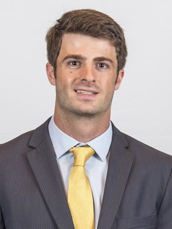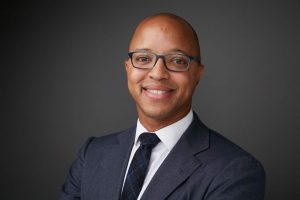Blog Post On The SUCCESS Act
THE SUCCESS ACT: WHERE WE STAND & THE PATH FORWARD
In this post, Brittany Amadi and Gary M. Fox outline the goals and findings of Congress’ SUCCESS Act and expose the correlation between lack of diverse inventors and lack of diversity within the STEM field.
The SUCCESS Act was intended to address racial and gender disparity in USPTO applications by requiring the government to conduct a study on applications submitted by and patents issued to women, minorities, and veterans. Later on in October 2019, the bleak findings were made public and the USPTO carried on with five recommendations to address the disappointing report, which Amadi and Fox draw out in this post.
But Amadi and Fox also suggest that, while good starting points, the Act and the following recommendations fail to address the root of the problem. They argue that it is only and until we tackle the underrepresentation of women and minorities in the STEM field during the earlier stages of intellectual development that we can mitigate discrepancies of underrepresentation in inventorship.
For more on this topic, check out these posts:
IIPSJ’s Comments to USPTO on strategy for National Council for Expanding American Innovation
Blog Post On NIL and Antitrust
NCAA’s Proposed NIL Regulations Are an Antitrust Violation Waiting to Happen
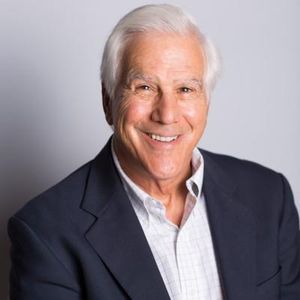 by Ronald S. Katz
by Ronald S. Katz
The NCAA is no stranger to antitrust violations. Defendant in a landmark U.S. Supreme Court antitrust case in 1984, the NCAA has been on the wrong side of two Ninth Circuit decisions in the past five years (a blink of the eye in antitrust time). That record of recidivism, however, has not stopped the NCAA from, once again, ignoring the free market and proposing new regulations (“Proposal”) on the sale of the names, images and likenesses of college athletes. The Proposal, not surprisingly, runs afoul of those earlier court decisions.
Names, images and likenesses have been sold since time immemorial in a free market. Of course, in a free market, these transactions are confidential. How much someone is being paid for a name, image or likeness is clearly competitively sensitive information.
Such confidentiality will not exist in the contracts of college athletes, however. According to the NCAA’s October 14, 2020 press release on the Proposal, “student-athletes would be required to disclose name, image and likeness activities including compensation arrangements and details of relationships developed through the process.” Such disclosures would be made to what the press release calls “a third-party administrator.”
Also, a free market enables competitors to deal with whom they please. According to the press release, however, there will be significant restrictions on the college athletes. First, they cannot “particpate in activities involving a commercial product or service that conflicts with NCAA legislation (such as sports wagering or banned substances) … ” However, sports betting and so-called banned substances like cannabis are, of course, legal in many states.
More ominously, according to the press release, “schools would have the opportunity to prohibit activities that conflict with school values or existing sponsorship arrangements.” Because many of the schools have sponsorship arrangements with major sports equipment/apparel companies like Nike and Adidas, this is a significant curtailment of competition. As for “school values,” this hopelessly vague phrase has the potential of blotting out all NIL activity by college athletes.
Measuring the Proposal against the major antitrust cases lost by the NCAA paints a clear picture of antitrust violations on the horizon. The 1984 U.S. Supreme Court case, for example, NCAA v. Board of Regents of the University of Oklahoma, 468 U.S. 85 (1984), involved the NCAA’s policy of curtailing the number of football games a school could televise, much as the Proposal curtails the quantity of names, images and likenesses that a college athlete can sell.
The Supreme Court’s holding was foursquare against the NCAA: “that the record supports the District Court’s conclusion that, by curtailing output and blunting the ability of member institutions to respond to consumer preference, the NCAA has restricted, rather than enhanced, the place of intercollegiate athletics in the Nation’s life. Accordingly, the judgment of the Court of Appeals [against the NCAA] is Affirmed.”
The Proposal does not fare any better under the 2015 Ninth Circuit case, 0 ‘Bannon v. National Collegiate Athletic Association, 802 F.3d 1049 (20!5). That case involved paying athletes for their names, images and likenesses, which was completely forbidden at that time.
The Ninth Circuit held that higher educational institutions were prohibited from preventing such payments up to the cost of attendance at an institution of higher education: “In this case, the NCAA’s rules have been more restrictive than necessary to maintain its tradition of amateurism in support of the college sports market. The Rule of Reason [of the Sherman Antitrust Act] requires that the NCAA permit its schools to provide up to the cost of attendance to their student athletes.”
The Proposal also does not meet the standards of the 2020 Ninth Circuit case, In re National Collegiate Athletic Association Athletic Grant-in-Aid Cap Antitrust Litigation, No. 19-15566 (May 18, 2020). That case involved paying athletes for education-related expenses. The Ninth Circuit opinion prohibited the NCAA member schools “from enforcing rules that restrict the education-related expenses that its member institutions may offer students who play Football Bowl Subdivision football and Division I basketball.” Again, the Ninth Circuit’s holding was crystal clear: “the district court properly concluded that NCAA limits on education-related benefits do not ‘play by the Sherman Act’s rules.”‘
Based on the above, the Proposal, if it is enacted by the NCAA, will violate the antitrust laws. As Senator Richard Blumenthal of Connecticut was quoted in the November 14, 2020 issue of USA Today, the Proposal was “functionally useless” and “will do little to change the current exploitive state of college athletics.”
Ron Katz is a Senior Counsel at GCA Law Partners LLP in Mountain View, California. A co-author of the textbook Sport, Ethics and Leadership (Routledge, 2017), he will be speaking on the subject covered above at the 2021 IP and Social Justice CLE this coming March 5.
For more on this topic, check out these posts:
Recent Name/Image/Likeness Legislation Will Change the NCAA (or Not)
The California Fair Pay to Play Act- Finally IP Social Justice for Student Athletes
Blog Post IP Attorney Interviews
Interviews with Attorneys of Color in IP
In 2020, spring and summer protests of racial injustice and mistreatment by police increased momentum to a movement to support diversity and inclusion in a variety of spaces, including in the legal field. Our work at the Institute has always included efforts to increase the diversity of the intellectual property legal bar. In 2003 the Institute established its annual IP and Social Justice CLE program, in part to provide opportunities for IP attorneys of color to present their expertise before IP experts in in-house corporate and governmental legal departments, elite law firms, and other IP entities. For the past seventeen years, this program has also enabled minority IP attorneys to serve as role models for dozens of law students and to encourage them to pursue careers in IP practice.
We believe the lack of diversity in the IP legal bar must be addressed in a variety of ways. We previously shared the Bloomberg Law article, Black IP Lawyers Who’ve Made It Look to Grow Ranks Beyond 1.7%. Now we build on that conversation starter with interviews with successful IP attorneys of color to hear their honest perspective:
- Esther Lim
- Mariessa Terrell
- Daryl Lim
- Jennifer Hayes
- Lita Rosario-Richardson
- Philip G. Hampton
- Idris N. McKelvey
Esther Lim
This month we feature an interview with Esther Lim.
Watch the full interview here.

Esther H. Lim is Partner & Chief Diversity and Inclusion Officer at Finnegan, Henderson, Farabow, Garrett & Dunner, LLP, and Patent Chair of the IIPSJ IP and Social Justice CLE program. Watch as she provides valuable insight into her personal journey to a career in patent litigation, portfolio management, licensing, and counseling, and the importance of diversity in intellectual property practice.

The interview was conducted by Ariel Batiste, a 2023 graduate of Howard University School of Law, and current associate at Finnegan.
Mariessa Terrell
This month we feature an interview with Mariessa Terrell.
Watch the full interview here.

With evolving definitions on what intellectual property includes and rapidly emerging technology, trademark and fashion attorney Mariessa Terrell discusses the unconventional career pathways taken that launched her to the forefront of a landscape shift in intellectual property law.
From her beginnings as a student at Howard University School of Law, Mariessa found a way to incorporate her love of fashion into her journey. Landing at the United States Patent and Trademark Office(USPTO) in the department responsible for beauty fashion matters was just the beginning. Since then, she has gone on to develop specialized practice areas at her law firm, served as D.C. Fashion Commissioner, and assumed the role of Adjunct Professor & Supervising Attorney of the Howard University School of Law Intellectual Property Law Clinic. She details that staying focused on what she wanted helped navigate her through her unique route to success.
After an extended hiatus, Mariessa made her way back to the USPTO office where she is the Attorney Advisor to the Trademarks Customer Outreach section where she develops the USPTO educational programs for experienced trademark practitioners. She also is Executive Director of the High Tea Society, a mentoring program for girls in Washington, D.C., and a creative writer with several published short stories featuring her alter ego, Simone Butterfly.
Contact Mariessa:
Web: MariessaTerrell.com
Social Media: @MariessaTerrellEsq
Email: M@MariessaTerrell.com
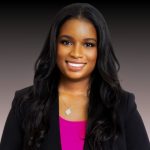
This interview was conducted by Leeandria Williams, a law student at Thurgood Marshall School of Law.
Daryl Lim
This month we feature an interview with Professor Daryl Lim.
Watch the full interview here.

Professor Daryl Lim is a very busy man. He is the H. Laddie Montague Jr. Chair at Penn State Dickinson Law, associate dean for Research and Innovation, and the founding director of Dickinson’s IP and Innovative Initiative. Incredibly, Professor Lim is also a co-hire in Penn State’s Department of Computational and Data Sciences, and an affiliate at Penn State’s Center for Socially Responsible Artificial Intelligence.
Truly IP’s international man of mystery, Professor Lim is an alumnus of the University of Singapore, the University of London (London School of Economics), and Stanford University. In addition to his professorial duties, he serves as a peer reviewer for several leading law journals as he is himself an award-winning author on the intersection of IP, technology, competition policy, and the public good.
During the interview, Professor Lim tackles the hard-hitting questions, including whether the practice of law as we know it will survive the current influx of generative AI chatbot programs, like “ChatGPT.” Thankfully, Professor Lim assures us that future lawyers who possess distinctly human characteristics–such as empathy, creativity, and a passion for social justice–will always be able to add value.

This interview was conducted by Liana Alston, a third-year law student at Howard University School of Law.
Jennifer Hayes
This month we feature an interview with Jennifer Hayes.
Watch the full interview here.
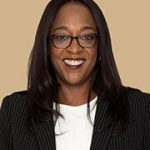
In this interview Jennifer Hayes, head of Jordan IP Law’s Pharmaceutical, Biotechnological, Life Sciences, and Chemical and Materials Practice groups gives her perspective on diversity in the legal profession and the importance of mentorship. Early in her career, Jennifer followed in her father’s footsteps and became a registered pharmacist in the state of Maryland. Later, her mother encouraged her to seek out a career in patent law.
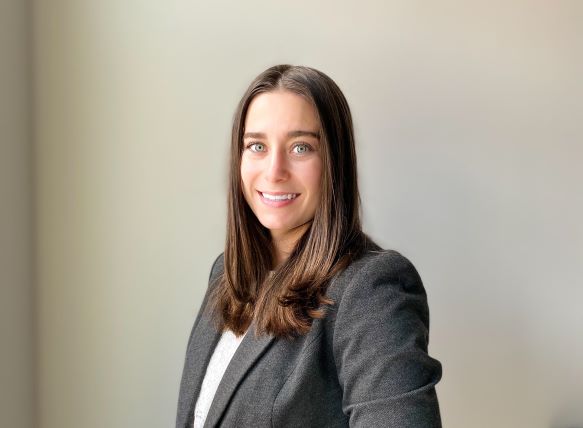
This interview was conducted by Erin Williamson, a third year law student at The George Washington University Law School. in the interview, Jennifer stresses the importance of “not taking no for an answer” and diligently pursuing opportunities to grow in one’s practice. In the interview, Jennifer talks about her experiences building Jordan IP’s chemical practice from the ground up and the challenge of bringing in new clients. Throughout the interview is one consistent theme: understand your strengths and never stop seeking opportunities to improve yourself.
Lita Rosario-Richardson
This month we feature an interview with Lita Rosario-Richardson.
Watch the full interview here.

Lita Rosario-Richardson runs WYZ Girl Entertainment Consulting, where she provides legal advice and advocacy for creators relating to intellectual property and entertainment issues. Early in her career, Mrs. Rosario-Richardson founded and was the VP of Business and Legal Affairs for University Music Group which produced multi-platinum artists Dru Hill, Sisqo, and MYA. She has represented numerous artists, including George Clinton, Missy Elliot, members of Parliament Funkadelic, Afrika Bambaataa, and Soul Sonic Force to name just a few. She is also an adjunct professor at the University of the District of Columbia’s Department of Mass Media, Visual, and Performing Arts and American University’s Kogod School of Business.
Philip G. Hampton
This month we feature an interview with Philip G. Hampton.
Watch the full interview here.
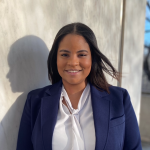
The interview was conducted by Elizabeth Rice, a third year law student at Howard University School of Law. In this interview, Chief Diversity & Inclusion Officer, Senior Partner and former Commissioner for Trademarks Phillip Hampton provides his perspective on diversity, the importance of mentorship, and success within the legal profession. Outside of his aforementioned experience, he is also an adjunct professor at Howard University School of Law and was recently awarded the 2021 Mark T. Banner Award, among many other recognitions and accomplishments.

Throughout the interview Hampton emphasizes the need to increase the presence of women and minorities in the legal profession, especially in the areas of patent and copyright law. He makes mentions of his own efforts in his former position as Commissioner for Trademarks to do just that. He attributes his personal success to his persistence and sometimes, admittedly, his stubbornness. In the interview, Hampton talks about his experiences early on in his career and how those challenges encouraged him to persist and work harder. While a broad range of topics and anecdotes are covered, a consistent theme is Hampton’s dedication and commitment to helping others achieve success in the legal profession.
Idris N. McKelvey
In December 2020, we featured an interview of Idris N. McKelvey.
Idris McKelvey leads the Estée Lauder Companies’ Patent Group, where he is responsible for designing and executing the company’s global patent strategy, supporting more than 30 luxury cosmetics brands. Idris was promoted to Vice President, and Lead Patent Counsel, in July of 2018.
Prior to Estée Lauder, Idris served as patent counsel for Procter and Gamble, managing global patent portfolios for brands including Pantene®, Head and Shoulders®, Herbal Essences®, Cascade®, and Dawn®.
Idris earned his J.D. from Howard University School of Law in 2005, and his B.S. in chemistry from Howard University in 2002 (cum laude). Away from work, Idris volunteers with the Long Island chapter of Girls Inc. and Jack and Jill of America. Idris resides in Huntington, NY with his wife, Monique, and two daughters, Nadia and Zara.
The interview was conducted by LaTessa Gray*, a third year law student at Howard University School of Law. In the interview, Mr. McKelvey discusses his career as a patent attorney, provides advice for future IP attorneys, and discusses the diversity, or lack of diversity, of the IP bar.
Here’s a description of the interview in Tessa’s own words.
Vice President, Lead Patent Counsel of Estee Lauder, and full-time “girl dad” Idris McKelvey is nothing short of inspiring. In this interview, McKelvey gives his perspectives on the lack of diversity in the legal profession, how to distinguish yourself amongst legal talent, and the importance of accepting and seeking honest critique in career development. He also negotiates a frozen yogurt date with one of his daughters.
McKelvey details an insightful approach to his philosophy of success which includes falling into opportunities, self-accountability and awareness, and fostering intellectual curiosity. But this is not all talk. His commitment to the skills he believes were useful in his journey is evidenced by his own hobbies and interests: listening to a variety of music, travelling the world with his wife and daughters [which has been on a halt with the virus], and reading books that push him to think and approach the world differently. Many years removed from his days as a chemistry major at Howard University, McKelvey still makes an effort to learn from the world around him and to use those teachings as a tool to differentiate himself within the legal field.
Blog Post On IP Empowerment for All
IP Empowerment for All
– Howard University School of Law’s Intellectual Property Student Association
THE PROBLEM
“In a system where billions of dollars are generated in part due to the athletic success of student-athletes, the restrictions on non-game related NIL deals do not prevent exploitation— they are exploitative.” – Professor Gabe Feldman, Tulane Law School; Director, Tulane Sports Law Program; Associate Provost for NCAA Compliance
***
While O’Bannon’s decision and the subsequent law changes in California and Florida is great progress around name, image, and likeness (“NIL”) as it pertains to the NCAA and student athletes, it has also created some other issues.
Uniformity is one of those issues. With the absence of federal legislation covering NIL standards for college athletes, California’s Fair Pay to Play Act has in essence created a “venue shopping” system where student athletes can choose a school to attend simply because it’s located in a state with more favorable NIL laws. In addition, large amounts of conflicting legislation can lead to mass confusion.
The other issue is that, in other states, students are dealing with the traditional harms of student athletes in the market for non-game NIL payments:
- Student athletes—just as other students—have property rights in their name, image and likeness. Many student athletes have created tremendous value in their NILs and, absent NCAA restrictions, would receive significant compensation for them in an open market. These men and women—often from socio-economically disadvantaged families—are deprived of the economic benefit the market would pay for their property.
- Some student athletes will actually have the most value to their NIL while they are in school. For example, some athletes are injured prior to professional drafts. Therefore, the NCAA’s policy prevents those athletes from properly capitalizing off of their image when it is most beneficial for them to do so.
- But most importantly, the stripping of an innate, legal right in consideration for the ability to play a sport (without any education about its existence) leaves the athletes less inclined to know how to properly use and commercialize their IP in the future.
THE MISCONCEPTION
One of the most common complaints against “Fair Pay to Play” is the argument that athletes do not deserve to be paid for playing a sport. This usually comes from people with little understanding of NIL or the NCAA’s policy, and rests solely on the literal meaning of the phrase.
But it’s important not to confuse third-party NIL compensation with other types of compensation. Most importantly, the NCAA is not contemplating changes that would allow colleges to pay college athletes. The Board of Governors remains fiercely opposed to “pay for play” and other forms of university-to-athlete compensation outside of the grant-in-aid (tuition, fees, room and board, required course-related books etc.). Third-party compensation for NIL is also not compensation for the underlying labor of playing a sport. No college will be allowed to pay their athletes for their NIL or their labor. The legislation would merely allow for student athletes to have the same NIL rights as every other student-creator.
THE SOLUTION
Howard University School of Law’s Intellectual Property Student Association (“IPSA”) has held a long-standing devotion to the application of social justice in the area of IP. It naturally follows that we would like to support a federal bill that would give college athletes the opportunity to profit off of their image and likeness that they have worked hard to curate.
Currently IPSA and our IP Empowerment For All subcommittee is in the process of updating research on current legislative proposals regarding NIL. This research will be imputed into a one-pager that more thoroughly addresses the need for particular federal legislation in this area. Then, we can utilize the paper as a tool to persuade our peers and colleagues to sign a petition in support of the proposal. While the NCAA’s proposal to Congress is effective in addressing uniformity, the language of the proposal is still very restrictive for student athletes.
As a result, we are working diligently to ensure that the proposed bill we choose to endorse and share addresses concerns across our communities and reflects our mission of social justice.
We are confident that armed with the correct information, many people will see that this proposal is long overdue. Please continue to check this space for our selected proposal and link to our petition!
Blog Post On Diversity and Innovation
Blog Post on the Importance of Diversity and Innovation
by Tashia Bunch, IIPSJ Administrative Director
The 2018 SUCCESS Act required the US Patent and Trademark Office (USPTO) to work with the Small Business Administration (SBA) to determine the number of patents owned by women, minorities, and veterans and to provide recommendations to increase that number. A report was provided in 2019 that included steps the USPTO plans to take as well as legislative recommendations. One such step by the USPTO was the launch of the National Council for Expanding American Innovation (NCEAI) initiative last month. The initiative includes representatives from private companies, academia, and government to help the agency develop a comprehensive national strategy to build a more diverse and inclusive innovation ecosystem.
As we explore ways to build this ecosystem, we must acknowledge why this is important to the country as a whole and specifically in minority communities, identify current barriers to equal access and opportunities, and provide solutions for breaking down those barriers.
We know that increasing innovation is valuable to society as a whole. This idea appears in the U.S. Constitution when it grants Congress the power to issue patents and copyrights in order to promote the progress of science and useful arts. Today, the United States promotes itself as a global leader and continuing contributions in science, technology, engineering, arts, and math (STEAM) fields are necessary to remain in that position. Moreover, creativity and innovation often lead to new business ventures and avenues for income contributing to the national economy and job creation.
Increasing IP creation and ownership in minority communities will contribute to these societal goals. It is also important to address economic justice principles of equitable access to financial opportunities. Creativity and innovation can lead to financial freedom through IP ownership and entrepreneurship. Access to education in STEAM fields beginning as early as elementary school as well as resources and community programs providing access information and assistance in protection and monetization can help expand IP creation and ownership in minority communities. As such, we strongly advocate for policies and programs providing education and access to the tools and information necessary to innovate and to monetize their innovations.
IIPSJ encourages a continuing dialogue on this important topic both on the impact and value of diversity in innovation and creativity and on ways to increase diversity in STEAM fields. Earlier this year at our annual CLE program, we featured a panel presentation titled “Remembering Invention of a Slave: Patents and the Continuing Struggle for Civil Rights”, which discussed inventorship and the struggle to acquire patents in the African American community from slavery to the present. You can view this discussion on our YouTube channel.
We have also shared a variety of materials discussing the topic in our monthly newsletter. Materials such as the NPR podcast and post detailing how conditions during the periods of post-Reconstruction and Jim Crow obliterated the legal incentives for black inventors to apply for patents and otherwise undertake innovative endeavors. Along with the story of Percy Julian, a chemist who managed to innovate and acquire over 130 patents during Jim Crow. Additional links below.
IIPSJ will continue to engage in continuing conversations on this topic, advocating for policy changes to serve minority communities and looking for other ways to help further the conversation and make change.
Links:
– USPTO launched the Expanding Innovation Hub, an online platform available on the USPTO website that provides resources for inventors and practitioners to encourage greater participation in the patent system
– Invention of a Slave and the Ongoing Movement For Equal Justice, by Dennis Crouch
– Motion Picture Association panel “Understanding Copyright’s Role in Diverse Storytelling”
– Copyright Alliance – Educational content addressing race and racism
Blog Post On Trademarks and Black Lives Matter
Trademarks and Black Lives Matter
Black Lives Matter. I Can’t Breathe. Say Her Name. George Floyd. Trayvon Martin. Breonna Taylor. Unfortunately, the list of phrases and names goes on. With each police involved killing, a new hashtag is born. And after awhile we see it everywhere. Used in connection with social media posts, on protest signs and t-shirts, and in connection with requests for donations to support change.
Whenever a death occurs, there is usually a slight influx of trademark applications submitted to the USPTO. For example, there are 30 applications that have been filed with the phrase Black Lives Matter, 13 applications with the phrase I Can’t Breathe, and 3 that include the name Trayvon Martin. Applications are filed by a variety of sources, including individuals, newly created foundations, the deceased’s estate, or other organizations.
Many of the applications have been abandoned after receiving one of two refusals for registration. The first refusal these applications may receive is because they suggest a false connection with someone or their estate, and that individual is not connected to the trademark application. For example, one application for the mark I Can’t Breathe was refused registration for a false connection with the estate of Eric Garner. Those that can show connection to the individual or institution can overcome this refusal.
Another refusal these applications receive are because they are such a commonly used phrase that consumers will not recognize it as a trademark. In other words, the term or phrase is used by so many that the public would not believe it is supposed to indicate one particular source. Instead they would read the phrase as simply indicating support of the message or movement. This refusal can be overcome by submitting evidence that the public will view the mark to indicate a single source.
If you see a trademark application in the USPTO records and have evidence that it is owned by a group other than those actually connected with the movement or individual, you can contact the USPTO through a letter of protest. More information on submitting letters of protest can be found on the USPTO website at https://www.uspto.gov/trademark/trademark-updates-and-announcements/letter-protest-practice-tip .
Although many are unable to register these names and phrases with the USPTO, they may still use them in connection with their products and services. Not all that are using the names and phrases are part of the movement. Check out this NPR story about the Black Lives Matter foundation which has collected millions of dollars during the recent protests, but has no connection the well-known Black Lives Matter Global Network foundation: https://www.npr.org/2020/06/16/878852994/a-company-that-profits-off-of-the-black-lives-matter-movement.
As we choose groups to support through sharing information, purchasing products, or donating money to an organization, we should be sure to check the source that we are supporting. Website and social media “about” pages or sections should give additional details about the organization to confirm whether it’s the group you actually want to support.

